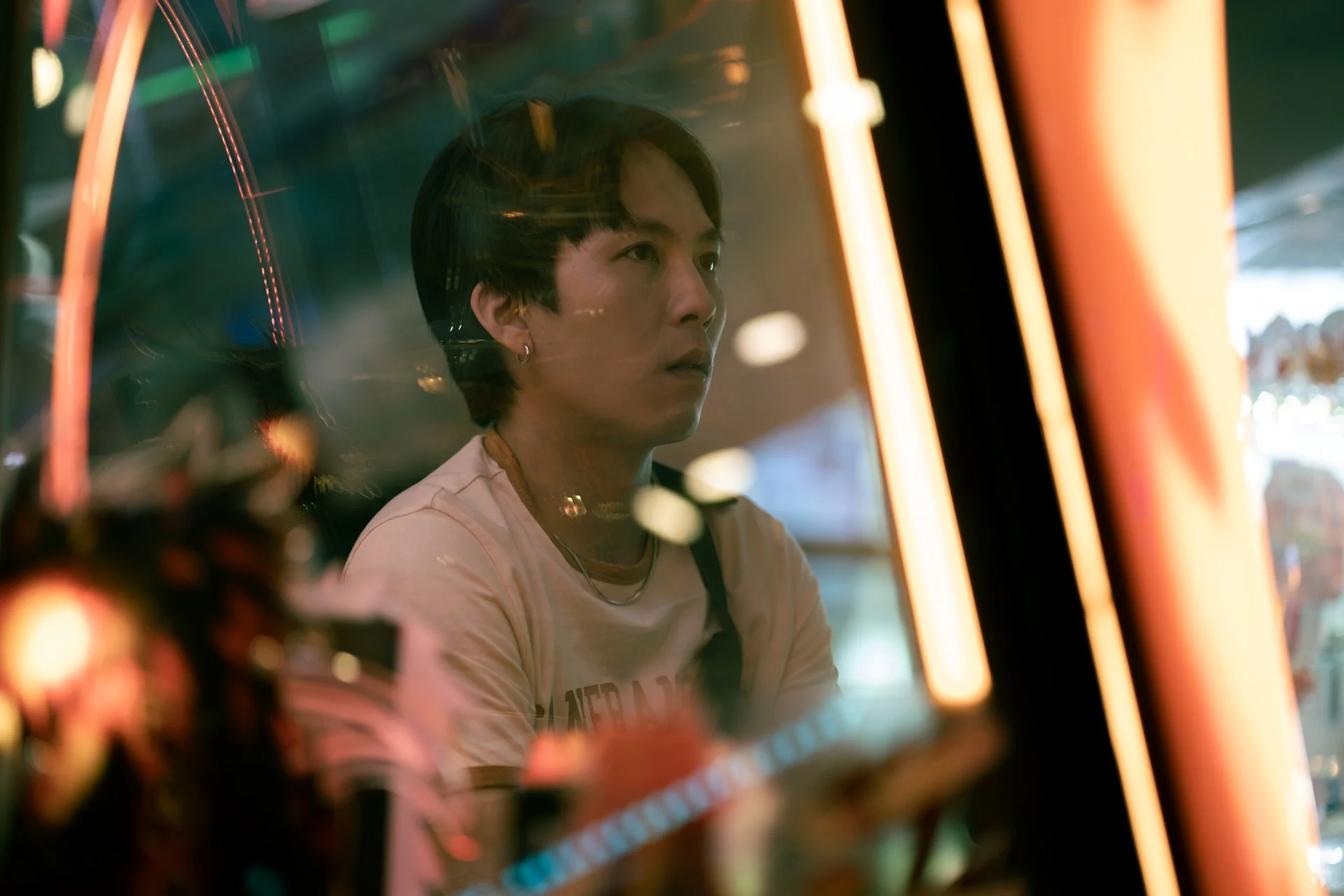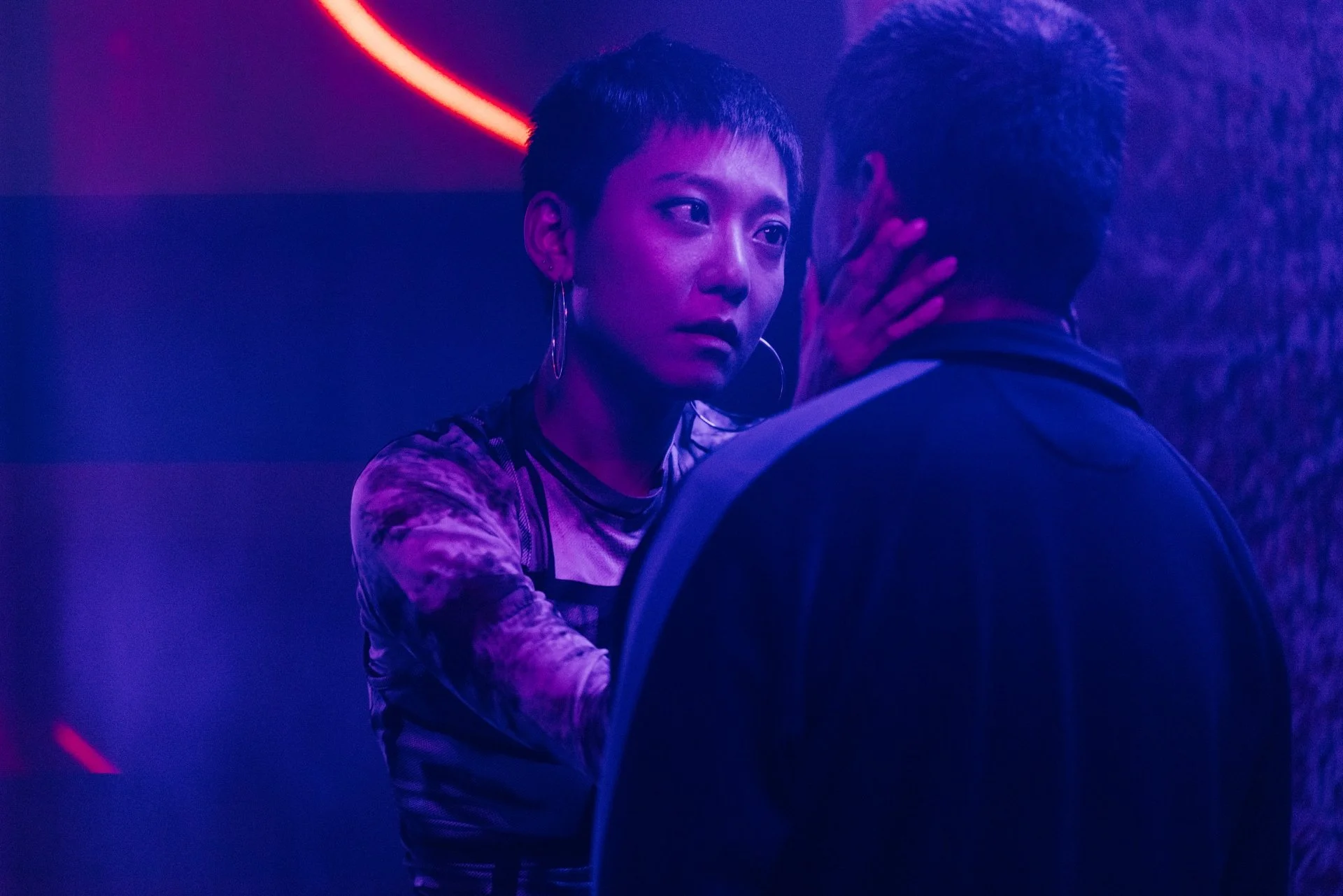“Stranger Eyes” Asks What it Means to Be Seen
In the late 18th century, philosopher Jeremy Bentham created the idea of the panopticon prison. It’s an institutional building that’s shaped like a circle, with one guard tower in the middle. The design is meant to give the impression that the prisoners in the outer, circular building are being constantly watched without knowing if the guard is looking at them. With the rise of at-home surveillance cameras, personal phones, and CCTV in public spaces, we’ve created a panopticon society. It’s this premise that Yeo Siew Hua explores in Stranger Eyes, a film that begins as a kidnapping mystery, but transforms into a rumination on what it means to be looked at.
A young couple, Junyang (Wu Chien-Ho) and Peiying (Anicca Panna), are struggling to process the loss of their daughter, Little Bo. She was kidnapped from a playground a few months ago and the police haven’t come across any compelling leads. The disappearance of Little Bo is all-consuming to the couple, as it would be for anyone whose child’s whereabouts are unknown. Junyang and Peiying become convinced that their neighbor (Lee Kang-sheng) is the culprit when they begin to receive video recordings, shot from afar, of their daily goings-on.
courtesy of Film Movement
Stranger Eyes poses an interesting question: how could a child go missing in a place that’s so heavily surveilled? The film comes from a Singaporean writer/director, Yeo Siew Hua, who must be acutely aware of living life under supervision. The Singaporean government plans to have 200,000 cameras installed by 2030 on a land area of only 270 square miles. To put that into perspective for Americans, Singapore is roughly the size of El Paso, Texas, where they are spending $7 million to add 300 cameras. Sure, the city of El Paso already has some cameras installed, but its total is still so far below that of Singapore. What Stranger Eyes offers those who don’t live somewhere like Singapore is the sensation of every moment being captured, catalogued, and scrutinized. It’s Jeremy Bentham’s panopticon, but outsourced from one guard to thousands of cameras.
Even with all the cameras present in Stranger Eyes, it’s clear the film’s themes are centered on observation. What does it mean to see someone or be seen by them? Is there a difference between observing and looking? Stranger Eyes argues that there’s so much nuance wrapped in looking, viewing, and seeing. We use all these words interchangeably, yet they all mean something slightly different, and that impacts our understanding of how someone is perceiving us. Stranger Eyes looks at the cameras we invite knowingly into our lives and the ones we don’t. At any given moment in public, we could be in the background of a stranger’s videos or photos and live forever in their memories.
courtesy of Film Movement
Stranger Eyes becomes less about the disappearance of Little Bo and more about the role of cameras in our modern society. How they’re a looming force that impacts the way we act. When we’re aware of a camera, we change our actions, we present ourselves as a better version. Stranger Eyes shows how people act when they’re not aware their every movement is being documented. We see these characters as the selfish, negligent, voyeuristic people they are, but also as the loving, protective parents they are. If Stranger Eyes does nothing else during its runtime, it proves that humans are a set of walking contradictions.
As the film ends, Peiying mentions that she likes the idea of “unconditional attention.” That someone can look at her and expect nothing from her. They don’t see her as a mother or a DJ or anything other than who she is in that very moment. That’s tantalizing, but it’s a type of attention that cannot be sustained. Stranger Eyes asks for the viewer’s attention and perception, skews it, and then asks viewers to find the fine line between surveillance for the sake of safety and for the thrill of voyeurism.
support your local film critic!
~
support your local film critic! ~
Beyond the Cinerama Dome is run by one perpetually tired film critic
and her anxious emotional support chihuahua named Frankie.
Your kind donation means Frankie doesn’t need to get a job…yet.
Follow me on BlueSky, Instagram, Letterboxd, YouTube, & Facebook. Check out Movies with My Dad, a new podcast recorded on the car ride home from the movies.


